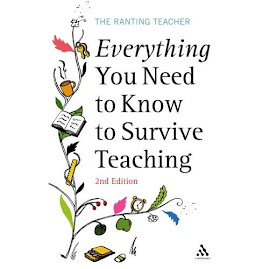School teachers using their home computers have been warned about the dangers of putting too much personal information on the internet.
Concerns were raised about teachers contacting pupils by e-mail, or communicating through social networking sites such as Bebo or Facebook.
Some fear that it could lead to the kind of accusations that have ruined careers in the past.
My response to this: no shit, Sherlock. And yet when I was surfing around one of these social networking sites the other day, searching for some photographs that a relative had posted, curiosity got the better of me and I did a search for my school name. I didn't want to snoop on pupils: that would feel so wrong, even if they do expose their private lives to such a public forum. But I wanted to see if any other staff used the site. And I must admit, I was surprised by how much information some of our staff members put up for all to see online.
But what was more surprising were the "friends" that these staff members linked to. At least half of them appeared to be present and past pupils of our school. I can understand that if you teach somebody for up to 7 years and they then go off to university and beyond, then you are curious about their future and how they get on with their adult lives. But where do you draw the line?
The General Teaching Council of Scotland is asking teachers to adhere to an agreement about using social networking sites. Usually I rankle at any intrusion the GTCs want to impose on us teachers, but I think they are right in this case. Here's what one of the teachers says at the BBC news article:
"There are some new technology issues that do come up. A friend of mine had a social networking page and was recently approached by a pupil to become their friend, to which they rapidly replied: 'no thanks'.
"In rural areas, where teachers live within the catchment areas of the school or perhaps have children who go to the same school, they may have pupils who are friends with their children and maybe even visit their house.
"At what point does it become the teacher/pupil relationship, or one of the friend's parent?"There has to be a balance between building a rapport with pupils, but also maintaining a distance and a level of formality.
"There is always an element of naivety, particularly with those who are new to the profession, but this new code will benefit us and protect us."


